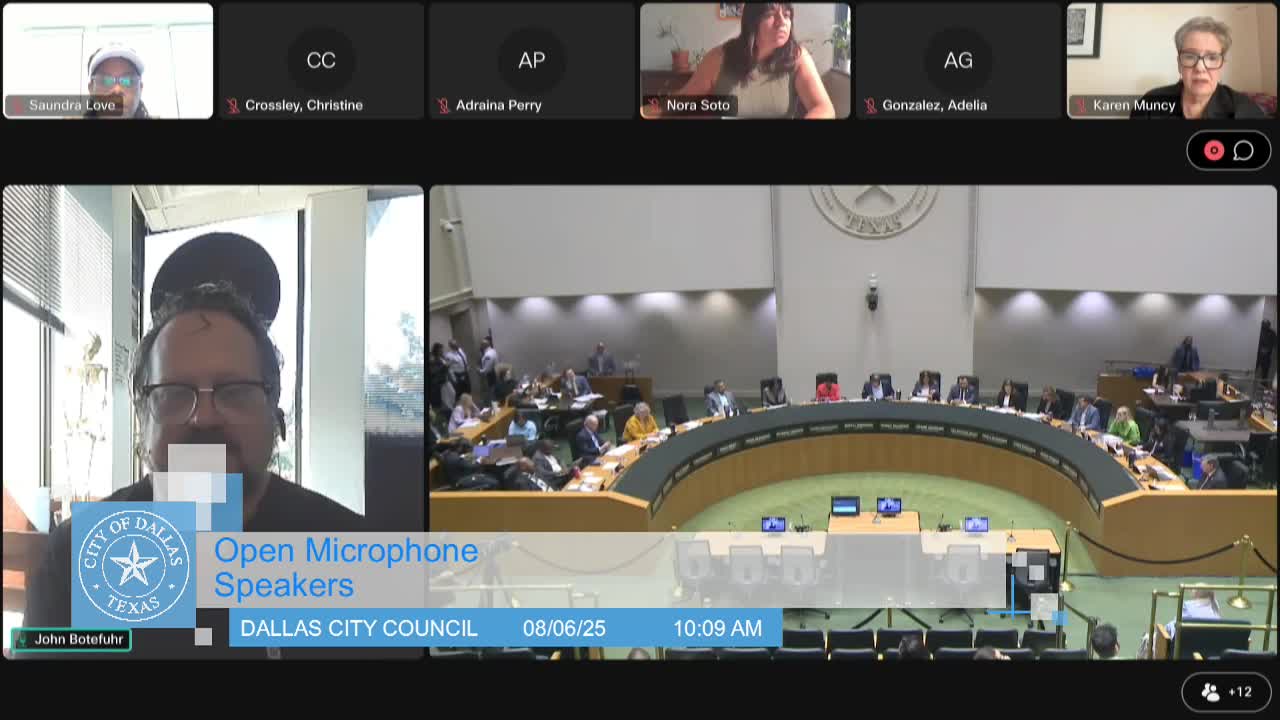Dallas Council Selects New Inspector General Amid Legal Qualification Concerns
August 06, 2025 | Dallas, Dallas County, Texas
This article was created by AI summarizing key points discussed. AI makes mistakes, so for full details and context, please refer to the video of the full meeting. Please report any errors so we can fix them. Report an error »

During a recent Dallas City Council meeting, significant concerns were raised regarding the appointment of the new Inspector General, a position critical for ensuring accountability and integrity within city operations. The Inspector General's role is designed to combat waste, fraud, and abuse, as well as to uphold the city's code of ethics. However, questions have emerged about the qualifications of the individual selected for this key position.
In June, the council voted to appoint a new Inspector General, but critics argue that the selection process did not adhere to the legal standards set forth by Proposition L, which was passed by voters in November. This proposition mandates that the Inspector General must be a competent practicing attorney and certified inspector general. Despite this requirement, there appears to be a lack of specific legal qualifications for the appointee, raising concerns about the integrity and effectiveness of the office.
The Inspector General's office is intended to operate independently, reporting directly to the council. However, critics have pointed out that the current structure may limit the office's powers, particularly its ability to issue legal opinions on matters of waste and fraud. This reliance on the city attorney for legal guidance could undermine the office's independence and effectiveness, contradicting the voters' intentions expressed in Proposition L.
The discussion also highlighted a broader pattern of behavior by the council, with accusations of undermining voter mandates and accountability. The recent repeal of a police staffing ordinance shortly after a related proposition was passed has further fueled skepticism about the council's commitment to transparency and responsible governance.
Community members, including Veronica Alvarez, expressed their frustrations during the meeting, emphasizing the need for city leaders to listen to constituents and prioritize their concerns. The ongoing dialogue reflects a growing demand for accountability and adherence to the principles established by voters.
As the council moves forward, the implications of these discussions will be closely watched by the community. The effectiveness of the Inspector General's office and the council's commitment to upholding voter mandates will be critical in shaping public trust and ensuring responsible governance in Dallas.
In June, the council voted to appoint a new Inspector General, but critics argue that the selection process did not adhere to the legal standards set forth by Proposition L, which was passed by voters in November. This proposition mandates that the Inspector General must be a competent practicing attorney and certified inspector general. Despite this requirement, there appears to be a lack of specific legal qualifications for the appointee, raising concerns about the integrity and effectiveness of the office.
The Inspector General's office is intended to operate independently, reporting directly to the council. However, critics have pointed out that the current structure may limit the office's powers, particularly its ability to issue legal opinions on matters of waste and fraud. This reliance on the city attorney for legal guidance could undermine the office's independence and effectiveness, contradicting the voters' intentions expressed in Proposition L.
The discussion also highlighted a broader pattern of behavior by the council, with accusations of undermining voter mandates and accountability. The recent repeal of a police staffing ordinance shortly after a related proposition was passed has further fueled skepticism about the council's commitment to transparency and responsible governance.
Community members, including Veronica Alvarez, expressed their frustrations during the meeting, emphasizing the need for city leaders to listen to constituents and prioritize their concerns. The ongoing dialogue reflects a growing demand for accountability and adherence to the principles established by voters.
As the council moves forward, the implications of these discussions will be closely watched by the community. The effectiveness of the Inspector General's office and the council's commitment to upholding voter mandates will be critical in shaping public trust and ensuring responsible governance in Dallas.
View full meeting
This article is based on a recent meeting—watch the full video and explore the complete transcript for deeper insights into the discussion.
View full meeting
